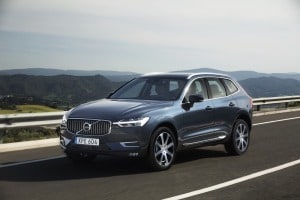Ceres Defends Its CAFE Report
A couple weeks back, I posted a commentary that raised questions about a report by Ceres, which leads a national coalition of investors, environmental organizations and other public interest group that addresses sustainability challenges. The report, making the rounds in Washington, makes the case that the proposed new Corporate Average Fuel Economy (CAFE) standards are a good thing. Specifically, the report insists that the technology required to reach the new CAFE standards is feasible, is reasonably priced and consumers want it. Further, Ceres linked higher CAFE standards to more jobs.
As you might expect, my commentary took the report to task. Ceres wasn't happy, sending us an email that included the following: "Ceres believes Mr. Anywl did not accurately convey the conclusions of Ceres' report or a previous poll he mentioned that was conducted by the Mellman Group for Ceres. Moreover, he did not recognize certain information found in the materials for both the poll and research report when making his point." Ceres asked for the opportunity to respond with a guest blog. One of my criticisms about the Ceres report is that it is short on detail, so I thought this was a great idea. Here is Ceres' submission:
Why Americans Love Better Fuel Economy
By Mindy Lubber
With Washington working on new national fuel economy standards at the same time the American economy is struggling, it's the right time to ask what fuel economy standard makes sense for our nation. Ceres, a national coalition of investors and public interest groups working on sustainability issues, asked the respected economic research firm Management Information Services Inc. (MISI) to look at what boosting fuel economy requirements might mean for America's economy. In a nutshell, MISI found that higher gas mileage would lead to economic growth and more jobs, because it would save consumers billions on fuel costs, freeing up money for other types of spending. These findings were not particularly shocking, since they echo other studies.
So we were disappointed by Jeremy Anwyl's cynical column blasting our “More Jobs Per Gallon” report, which shows: proposed fuel economy standards would save consumers approximately $107 billion at the pump in 2030, freeing up money to be spent elsewhere; and higher gas mileage standards along the lines of what the government has proposed -- average fuel economy of 54.5 mpg by 2025 -- would fuel net job gains in 49 of 50 states, including about 484,000 new jobs economy wide and 43,000 new jobs in the domestic auto industry in 2030.
Anwyl equates higher gas mileage with less desirable automobiles. But the truth is that the proposed mileage standards grade on a curve, so consumers will continue to be able to choose from a full range of vehicles -- from large SUVs, to family sedans to economy cars -- and all of them will be as fuel-efficient as possible. We love our cars --and we'll love them even more when they cost less to drive.
Anwyl correctly notes that substantially boosting gas mileage will raise sticker prices. But he incorrectly writes,“Ceres claims that savings on fuel will at least partially offset these costs.” Our report says the opposite; it cites government numbers -- not our numbers -- that project that fuel savings won't just “partially offset” higher initial costs, they will cover them completely and then start putting money back in drivers' wallets. The National Highway Transportation Safety Administration and the EPA project savings of between $4900 and $7400 over the lifetime of a higher-mileage car, with the break-even point for the buyer at four years or less.
And survey after survey, including regular polling done by the Consumer Federation of America, show that drivers want more fuel efficient cars, and are willing to pay more up front to save on gas in the long run. The bottom line is this: higher gas mileage standards will save American families enormous amounts of money, spur American carmakers to be more competitive in a world increasingly looking for ways to save energy, and boost employment here at home. Along the way, we will reduce dependence on foreign oil and cut back on pollution. That sure seems like a win-win to us.
Ceres President Mindy Lubber authored this rebuttal. The mentioned report is on the Ceres Web site.
Jeremy Anwyl: Vice Chairman of Edmunds.com. Follow @JeremyAnwyl on Twitter.





